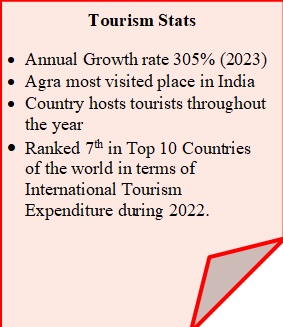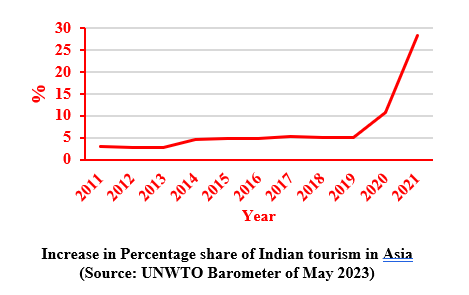

India’s rich cultural diversity, stunning landscapes, and historical significance make it a key player in the global tourism industry, attracting millions of travellers each year. Although tourism generates economic benefits by creating jobs and boosting local businesses, it can also cause environmental degradation, resource depletion, and cultural disruption. To ensure tourism’s positive impact, it’s crucial to balance economic growth with environmental protection and cultural respect.
Goal of This Guide

Travelers can play a significant role in shaping the impact of tourism. This guide aims to help you travel in a way that leaves a positive mark through responsible and sustainable travel practices. Whether you’re planning a family vacation, a solo adventure, or a cultural excursion, these guidelines will help you adopt habits that support local economies, respect the environment, and preserve cultural heritage.
Responsible Tourism
Responsible tourism minimizes negative impacts while maximizing the positive effects of travel. It emphasizes respect for nature and local communities. Key practices include:

- Preserving Nature: Avoid activities that harm ecosystems.
- Understanding Processes of Nature: Learn about local flora and fauna.
- Respecting Local Communities: Be considerate of local customs and traditions.
- Understanding Local Culture: Embrace the culture, art, and food.
- Appreciating Local Cuisine: Try traditional foods and support local eateries.
Sustainable Tourism
Sustainable tourism goes beyond responsibility, focusing on long-term viability. Key practices include:
- Responsible Use of Resources: Minimize waste, use public transport, and opt for eco-friendly accommodations.
- Minimize Plastic Usage: Avoid single-use plastics and do not litter.
- Carpooling: Share rides to reduce carbon emissions.
- Accounting for Carbon Footprint: Be aware of your environmental impact and take steps to offset it.
Guidelines: Do’s and Don’ts
Do’s: Creating a Positive Impact
- Use Local Transport: Support public transit and local transportation options.
- Eat Local Food: Enjoy regional specialties and support local farmers.
- Choose Home Stays: Experience authentic culture and support local families.
- Buy Local Products: Purchase crafts and goods from local artisans.
- Spread the Seeds: Buy local fruits and spread the seeds after eating
- Maintain Personal Hygiene: Stay clean to prevent illness.
- Understand Local Regulations: Respect local rules and customs.
- Prepare for Emergencies: Have a list of emergency contacts.
- Share Your Travel Plans: Let someone know where you’re going.
Don’ts: Preventing Negative Impact
- Disturb Local Biodiversity: Avoid damaging habitats and wildlife.
- Waste Resources: Conserve water and food.
- Irresponsible Littering: Dispose of waste properly.
- Demand Urban Luxuries: Be sensitive to local lifestyles.
- Focus Solely on Selfies: Engage with your surroundings and the people you meet.
- Use Excessive Internet: Disconnect to fully experience your environment.
- Carry Excess Baggage: Pack light to reduce environmental impact.
- Use Harmful Chemicals: Choose eco-friendly sunscreens to protect aquatic life.
Commitment to Sustainability
Your commitment to sustainability doesn’t end when your trip does. You can continue making a positive impact by sharing your experiences and promoting sustainable travel. Consider planting trees or supporting reforestation projects to offset your carbon footprint. Educate others about the importance of sustainable tourism, and share these guidelines with fellow travellers. If you’re inspired to make a broader impact, consider donating to local NGOs that focus on environmental conservation and community support.
Thank you for joining our initiative to promote sustainable tourism. By following these guidelines, you’re not only enriching your travel experiences but also contributing to a healthier planet and more vibrant communities.
Safe travels!






Leave a Reply